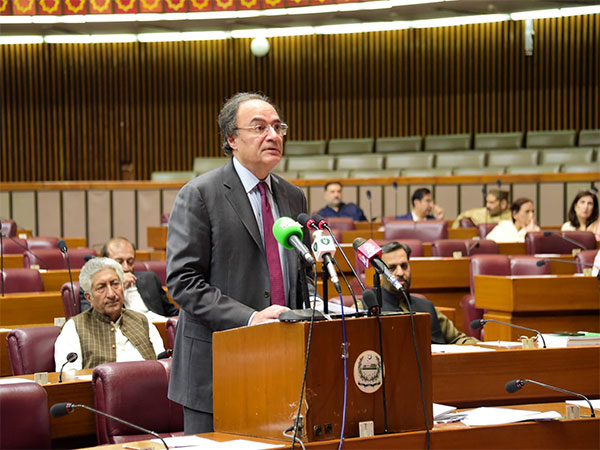Pakistan's Finance Chief Seeks Debt Relief in Beijing
Pakistan's Finance Minister Muhammad Aurangzeb visits Beijing to discuss power sector debt relief and structural reforms as part of a $7 billion IMF bailout deal. He meets with Chinese officials and highlights tax and energy reform efforts aimed at reducing circular debt by $360 million annually.

Pakistan's Finance Minister Muhammad Aurangzeb arrived in Beijing on Thursday for discussions focused on power sector debt relief and structural reforms, as recommended by the International Monetary Fund, according to two government sources. Aurangzeb, accompanied by Power Minister Awais Leghari, engaged in talks with his Chinese counterpart to explore various proposals, including the reprofiling of nearly $15 billion in energy sector debt.
As the meeting proceeded, Pakistan's bonds experienced a dip, with the 2036 maturity price falling by 1.73 cents to 73.05 cents on the dollar by 1415 GMT, marking its lowest level since April, as per Tradeweb data. Historically, loan rollovers and disbursements from China have been pivotal in helping Pakistan manage its external financial obligations.
Earlier this month, the IMF sanctioned a $7 billion bailout for Pakistan, addressing concerns over high rates of power theft and distribution losses that contribute to debt in the production chain. The government is executing structural reforms to curb 'circular debt' -- public liabilities caused by subsidies and unpaid bills -- by 100 billion Pakistani rupees ($360 million) annually, Power Minister Leghari stated. In a statement on X, Leghari noted that he and Aurangzeb had briefed Chinese Finance Minister Lan Fo'an on Pakistan's tax and energy reform initiatives. Pakistan's finance ministry stressed the significance of the IMF deal in enabling these reforms.
(With inputs from agencies.)










